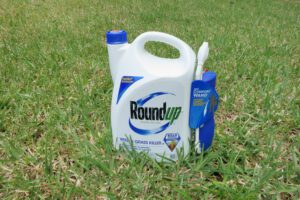Table of Contents
Ranitidine, a medication that inhibits stomach acid production in the treatment of peptic ulcer disease and heartburn, is commercially known as Zantac. As a type of antihistamine, it blocked the production of histamine, impairing the amount of acid released by stomach cells. England first developed ranitidine in 1976, and it saw commercial use by 1981. It was widely used in the decades that followed, until concerns arose about levels of the contaminant N-nitrosodimethylamine (NDMA) in the drug, which can increase with time and temperature, posing a cancer risk. With further studies raising alarm about this aspect of the drug, the FDA ordered the revocation of Zantac’s approval and the removal of all products containing ranitidine from prescription and over-the-counter stores immediately, although it is still available by prescription only in specific cases. By 2020, the FDA removed all ranitidine-containing products from shelves, but the rise in possible links to various gastrointestinal cancers led to the emergence of Zantac class action lawsuits. If you want to know more about filing your own Zantac lawsuit, read on.
How Zantac is Linked to Cancer
In June 2019, the FDA received complaints from various researchers claiming that Zantac brands of medications result in high levels of NDMA due to a chemical molecule’s instability. In September of that year, the FDA released statements acknowledging the elevated presence of NDMA in Zantac products over prolonged use, as well as the fact that it is considered a human carcinogen. In the years that would follow with Zantac cancer lawsuits, plaintiffs argued that the link between elevated levels of NDMA and various types of cancers was becoming more apparent as research started to show the possibility of a link between the two. In October of 2019, researchers also discovered that applied heat aggravated the situation, as higher temperatures resulted in chemical reactions that elevated NDMA levels in Zantac products. Researchers advised a “precautionary stop” of ranitidine products for the sake of testing of existing products, and by April 2020, these tests confirmed that even in normal storage conditions, absent of undue heat, Zantac products still harbored unsafe amounts of NDMA levels. In 2019, the FDA began issuing recalls of ranitidine products, culminating in a full withdrawal order by April 2020. It dropped from one of the most commonly prescribed acid inhibitors on the market to only about 20%, with the first lawsuits following soon after. You can find more details about these lawsuits by clicking on this link. The following are some of the Zantac cancers mentioned in Zantac lawsuits:
- Bladder cancer
- Stomach cancer
- Esophageal cancers
- Liver cancers
- Pancreatic cancers
Current Zantac Lawsuit Updates
With regards to Zantac cancer litigation, new developments happen daily, all of which could affect future cases moving forward. Check this link for Zantac lawsuit updates, and stay abreast of new developments in 2024 for information on how your own litigation might proceed. So far this year, these are the major Zantac lawsuit updates:
- January 2024: Judge Vivian L. Medinilla of Delaware requested that plaintiffs bringing suit against Zantac in her court provide sufficient evidence of a link between the medication and their cancer diagnoses. This evidence must include recognized scientific methodology and expert witnesses.
- June, 2024: Judge Medinilla ruled that there was sufficient evidence to allow cases in Delaware concerning Zantac’s link to cancer to proceed. Also this month, a Zantac trial in Philadelphia received permission to proceed in 2025.
- July 29, 2024: The case of Kimbrow v. GlaxoSmithKline has culminated in a confidential settlement. The plaintiff alleged Zantac caused prostate cancer.
- August 5, 2024: A jury did not find in favor of the plaintiff in K vs. GSK, as they could not reach a unanimous verdict determining that ranitidine was indeed the cause of the plaintiff’s prostate cancer. The case resulted in a mistrial and is set for retrial in 2025.
Finding the Best Attorney for Your Zantac Lawsuit
Finding the best attorney for Zantac lawsuit representation is crucial, as with any personal injury lawsuit. There is no shortage of lawyers out there ready and willing to represent you for a portion of the settlement, but your Zantac lawyer should have experience in this type of litigation, a history of successful cases against big pharmaceutical companies, and knowledge of the potential connection between Zantac and certain types of cancers. When researching attorneys for Zantac lawsuits, take into account the following factors:
- Consider other clients’ reviews of the attorney’s performance.
- What percentage of cases have they won?
- Do they only charge a fee if there is a recovery, or is there an initial upfront cost?
- What percentage of the settlement do the Zantac lawsuit attorneys require? Do not consider an attorney who asks for more than 40%.
- Does the Zantac lawyer have the financial and staffing resources to take your case and give it the appropriate attention?
- How long have they been in practice, and what experience do they have with this type of lawsuit, or Zantac-specific lawsuits?
- Is the attorney a member of any professional legal organizations that specialize in this form of representation?
- Are the Zantac lawsuit attorneys certified by the National Board of Trial Advocacy?
To learn more about the attorney you are considering, click on this link to access peer review ratings of over a million lawyers across the country, which include biographies and information on areas of expertise. Consider also Super Lawyers, a list of lawyers from more than 70 practice areas who have achieved a high degree of peer recognition and professional achievement.
What to Expect from Your Zantac Lawsuit Payout
Every legal case is different, and while many lawyers and judges prefer the ease of precedent, in which similar cases decided by other courts act as a guide in the decisions of a similar case, it is also important to remember that a variety of factors play a role in how well your case does at trial. Your Zantac lawsuit payout might differ from another similar case due to a variety of factors, and realistically, settlements of millions of dollars in a single case are quite rare. It is far more common to expect a payout of around $100K to $160K in a single-case lawsuit, and anywhere from $80K to $120K in a class action lawsuit. In general, the courts will consider the extent of your injury and loss of income due to an inability to work, pain, suffering, and other factors impacting your quality of life.
Frequently Asked Questions About the Zantac Lawsuit
When you contact a lawyer about your case, during the evaluation phase of the process, the attorney will look at your medical records and personal history to determine if you have a valid case against Zantac. Generally, the attorney requires a diagnosis of gastrointestinal cancer and proof of Zantac use for over three months.
When you contact a lawyer about your case, during the evaluation phase of the process, the attorney will look at your medical records and personal history to determine if you have a valid case against Zantac. Generally, the attorney requires a diagnosis of gastrointestinal cancer and proof of Zantac use for over three months.
The first outcome is that you lose the case and must pay back your own and the opposing side’s court fees. Alternatively, you could win the case and receive a damages payout of approximately $100K.
Anyone who has been diagnosed with any of the accepted cancers listed above and has taken Zantac for at least three months may be eligible to join a Zantac class action lawsuit.
In general, most lawsuits take anywhere from six months to two years.
Zantac lawsuit updates in 2024 demonstrate that pursuing legal action in a lawsuit of this nature is not assured. If you lose your case, you will be responsible for your own court fees, as well as the defendant court fees, which is costly.
Your medical records, other physical evidence, and statements from two or more doctors confirming your cancer diagnosis and Zantac use, if prescribed, must be present.
Most jurisdictions prohibit filing a lawsuit against a medication you are currently taking because you need to demonstrate that the drug caused you harm.
The first step is to notify your doctor immediately and stop taking the drug if ordered to do so. Your doctor should perform tests to determine the extent of any injury, if any. Depending on the results of this test, you may have a valid case against Zantac.




